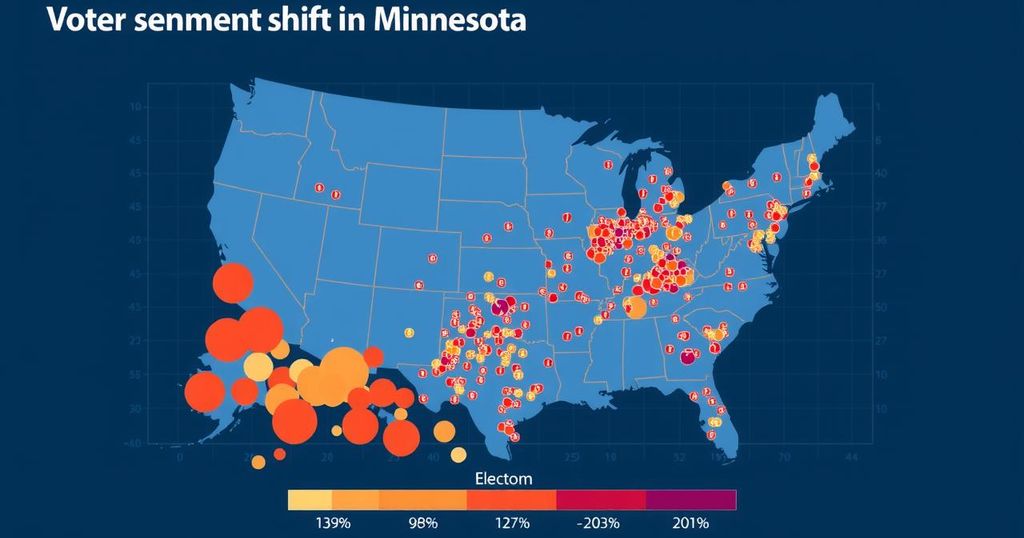Shift in Somali American Support for Democrats in 2024 Election

In the recent 2024 presidential election, Somali Americans in Minnesota, traditionally Democratic voters, increasingly shifted their support away from the party, influenced by dissatisfaction with the Israel-Gaza situation and economic concerns. Kamala Harris won the state by a narrower margin than Joe Biden in 2020, with marked declines in voter support in key precincts. The changing political landscape reflects broader frustrations within the community regarding representation and engagement from Democrats.
In the 2024 presidential election, the Democratic Party experienced a significant loss of support among Somali American voters in Minnesota, a demographic that had previously voted reliably for the party. Kamala Harris, the Democratic nominee, captured the state but with a narrower margin compared to Joe Biden’s victory in 2020, particularly in precincts with a high concentration of East African residents. Notably, support for Harris in Cedar-Riverside decreased by 14 percentage points, and similar drops were observed in other predominantly Somali precincts. The shift in allegiance among Somali voters can be attributed to several factors, including dissatisfaction with the Biden administration’s handling of the Israel-Gaza conflict, economic concerns, and a sense of neglect from Democratic leaders. Local activists actively campaigned against Harris, encouraging constituents to support alternative candidates based on perceptions of the party’s policies regarding the Middle East. Voter interviews revealed a growing sentiment that the economic landscape was more favorable under former President Donald Trump, alongside cultural concerns that reflected a desire for parental control over children’s education relating to gender issues. Prominent figures within the community pointed out that while there was a record of solid Democratic support, a pivotal change appears to be underway, as many Somali Americans expressed frustration with the party’s direction and priorities. In a national exit poll by the Council on American-Islamic Relations (CAIR), a large portion of Muslim voters, including those from the Somali community, opted for Jill Stein of the Green Party, a reflection of their disenchantment with the Democratic Party. Furthermore, Trump’s outreach methods and campaign messaging appeared to resonate with some Somali voters, despite their historical apprehensions regarding his stance on immigration and community integration. Local Democratic efforts late in the campaign, including a joint rally with Republican figure Liz Cheney, were perceived as counterproductive and further alienated these voters. Council Member Jamal Osman noted a trend of voters redirecting their frustrations and protest votes towards Trump, rather than an endorsement of his policies. The overarching narrative suggests that the Democratic Party’s failure to engage and address the specific concerns of the Somali community may have inadvertently opened the door for broader skepticism and dissent among formerly loyal supporters.
The article investigates the decline of Democratic support among Somali American voters in Minnesota in the context of the 2024 presidential election. Somali Americans, who have historically been a reliable bloc for the Democratic Party, shifted their allegiance, influenced by various factors, including international conflicts, economic perceptions, and social values. The political landscape of the community is evolving, displaying a nuanced relationship with both the Democratic and Republican parties, based on local experiences and national politics.
The decline in Democratic support among Somali American voters signifies a critical turning point for the party, highlighting the importance of addressing community-specific concerns. As frustrations mount over both foreign policy and local economic issues, the evolving political engagement of these voters may reshape future electoral strategies. The Democratic Party’s challenge will be to regain the confidence of this key demographic by actively listening and responding to their outlined priorities.
Original Source: www.startribune.com








